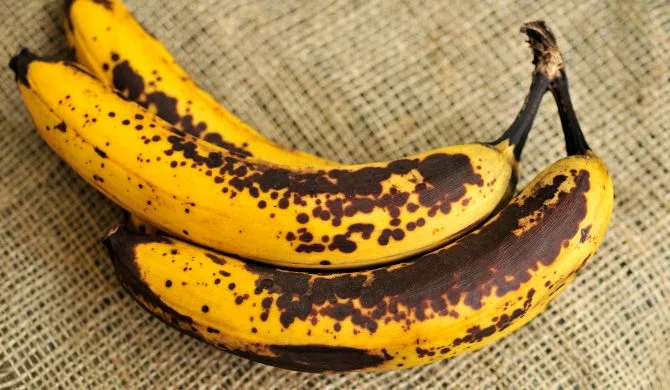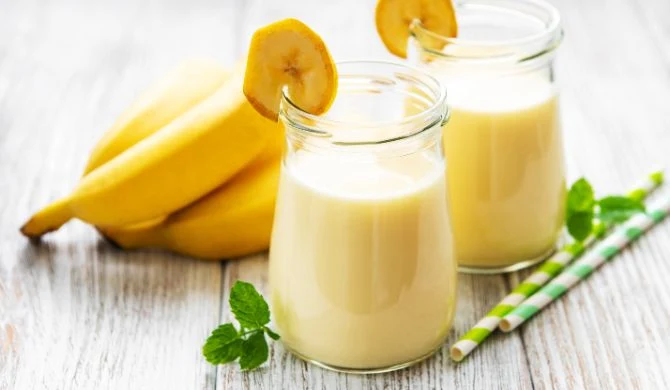Do Bananas Make You Gain Belly Fat?

Bananas are one of the most popular fruits in the world. They are an excellent source of key nutrients like potassium, vitamin B6, and fiber. However, some people worry that bananas may contribute to belly fat gain due to their sugar and calorie content. This article examines the evidence behind whether bananas truly make you gain belly fat.
Can Bananas Lead to Belly Fat?

What is Belly Fat?
Belly fat, also known as abdominal adipose tissue, refers to fat stored around the abdomen. It is considered especially harmful because it's located near vital organs and is linked to chronic health conditions like heart disease, diabetes, and certain cancers).There are two main types of belly fat:
- Subcutaneous fat: Found just under the skin, giving the abdomen a padded feel. This type of fat is considered less dangerous.
- Visceral fat: Found deeper inside, surrounding the organs. This type releases inflammatory markers that can drive disease and is closely tied to metabolic dysfunction.
Calorie Content in Bananas
Bananas are high in carbs and low in fat and protein. A medium banana (118 grams) contains:- Calories: 105
- Carbs: 27 grams
- Fiber: 3 grams
- Sugar: 14 grams
- Fat: 0.4 grams
- Protein: 1.3 grams
Due to their carb and natural sugar content, there are some concerns that bananas may promote weight gain and fat accumulation if eaten in excess.
Bananas and Weight Gain
There are mixed opinions on whether bananas cause weight gain.On one hand, bananas are high in carbs and sugars like fructose and sucrose. Some people claim that carbs and sugars drive fat storage, especially around the belly area.
Additionally, bananas rank high on the glycemic index, meaning they cause a rapid rise in blood sugar levels after eating. High glycemic index foods may stimulate hunger and promote fat storage, according to some researchers.
However, other experts argue that bananas are not inherently fattening and can be included as part of a healthy, balanced diet.
They note that bananas are nutritious and high in fiber, which slows digestion and promotes feelings of fullness. One banana provides around 3 grams of fiber, or up to 12% of the RDI.
Fiber's potential to reduce calorie intake may offset any concerns about the carb and sugar content.
Some research comparing bananas to other fruits also suggests they may benefit weight control.
In one study, bananas were found to be more filling and led to lower calorie intake compared to oranges.
Another study in over 200 overweight and obese adults found that including bananas in an energy-restricted diet did not negatively affect weight loss compared to a banana-free diet (8).
Overall, research on bananas and weight management is inconsistent. While their carb and sugar contents may contribute to weight gain in some, their fiber, nutrients, and plant compounds may support a healthy weight in others. More research is needed.
Impact on Belly Fat
Very few studies have directly examined if bananas increase belly fat.Existing research on related dietary factors like fruit intake, fiber, and carb composition provides some insight:
Fruit intake: Higher fruit intake is linked to less visceral adipose tissue, a marker of belly fat, in some observational studies.
Fiber: Increased fiber intake from fruits and vegetables is associated with up to a 3.7% decrease in waist circumference over 4 years, one review reported.
Carb composition: Replacing refined grains with whole foods like bananas may reduce abdominal obesity.
Additionally, bananas may help lower belly fat indirectly by promoting feelings of fullness and reduced calorie intake.
Overall, no current evidence supports avoiding bananas for fear of increased belly fat. In fact, their fiber, nutrients, and plant compounds may benefit belly fat loss in some cases.
Other Potential Drawbacks of Bananas
While bananas are unlikely to directly cause belly fat, some downsides are worth noting:- Bloating: Some people may experience bloating and gas after eating bananas. Ripe bananas contain fructose and fructans, compounds that some people don't digest well.
- Blood sugar spikes: Bananas are high glycemic index. Portion control is key for people with diabetes or metabolic syndrome .
- Allergies: Banana allergy is one of the most common food allergies. Symptoms include hives, swelling, and stomach cramps.
- Pesticide exposure: Bananas tend to be heavily treated with pesticides. Select organic when possible or wash thoroughly before eating.
As with any food, moderation and wise choices are key. Those concerned should monitor their individual response.
How to Enjoy Bananas While Preventing Belly Fat
Here are some tips for including bananas as part of a diet to reach or maintain a healthy belly fat percentage:- Stick to 1–2 bananas per day max and be mindful of portion sizes. Limit banana chips, breads, and other processed products high in added sugars.
- Maximize nutrients and fiber by eating bananas when ripe. Underripe bananas are higher in resistant starch, which may cause digestive issues.
- Pair bananas with a source of protein like nuts or seeds to help control blood sugar response.
- Select organic bananas when possible to reduce pesticide exposure. Peel and wash thoroughly before eating.
- Consider banana alternatives low in sugar and carbs if prone to bloating or allergies, such as berries, grapefruit, melons, or kiwi.
- Bananas can be part of a healthy diet and weight loss plan, but reducing excess belly fat requires an overall high intake of vegetables, fiber, protein, and exercise.
Conclusion
Bananas are highly nutritious but also high in carbs and sugars. The evidence does not support that bananas cause belly fat gain. In fact, their fiber, nutrients, and plant compounds may benefit belly fat loss.
However, some people may need to practice portion control and pick low-sugar banana alternatives if prone to bloating or blood sugar spikes. Overall, bananas can be included in a healthy diet focused on high fiber veggies, lean protein, and exercise to reach a healthy belly fat percentage.
Post a Comment